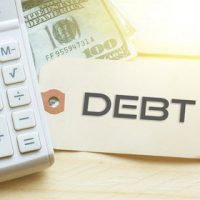Can Bankruptcy Help with Federal Tax Debts?

Of all the debts people owe, federal tax debts are some of the most worrisome. Uncle Sam insists on being paid. The federal government has shown little hesitancy placing liens on people’s properties and garnishing their wages. Could a bankruptcy help? Generally, you cannot get rid of federal tax debts in bankruptcy, but a few exceptions apply.
Chapter 7 Bankruptcy
In a Chapter 7 bankruptcy, debtors can discharge (wipe out) unsecured debts. To qualify to wipe out federal tax debts, you will need to satisfy the following requirements:
- The tax debt should be at least three years old.
- The IRS assessed the debt at least 240 days before you filed for bankruptcy.
- You filed a legitimate tax return for the relevant year. You must have filed this return at least two years before filing for bankruptcy.
- Your tax debt is for income taxes as opposed to penalties for fraud or payroll taxes.
- You did not commit tax evasion or tax fraud. For example, you did not change your name or your Social Security Number to avoid paying taxes, and you did not file an incomplete or erroneous tax return.
You must meet all of these requirements, not simply some. Furthermore, you won’t be able to get rid of a tax lien if one has already been placed on your property. Instead, you will need to pay off the lien before you can sell your property.
Because tax law is complicated, you should meet with a bankruptcy lawyer who can analyze your circumstances and help identify whether a Chapter 7 bankruptcy can help you with your federal tax debt.
Chapter 13 Bankruptcy
A Chapter 13 bankruptcy might eliminate some of your tax debt, but you probably cannot get rid of all of it. A Chapter 13 will work this way:
- You will need to pay the portion of your tax debt that is non-dischargeable.
- You will be able to pay off the non-dischargeable tax debt throughout the life of your repayment plan (typically 3-5 years). This gives you some breathing room since you will not have to pay off the full amount all at once.
- The portion of your tax debt that is dischargeable will be eligible for discharge at the completion of your repayment plan.
A Chapter 13 is particularly helpful if you intend to pay off your debts but need a little bit of time. There are other reasons to choose a Chapter 13—such as being able to save your home or car—which you should discuss with a bankruptcy lawyer.
Contact a Florida Bankruptcy Lawyer Today
Distressed taxpayers are drowning in all kinds of debt, and you need a game plan to help you dig your way out. Each situation is different, so you should meet with a bankruptcy lawyer to receive individualized advice. At Nowack & Olson in Plantation, we consult with distressed taxpayers about the best way to manage their debts. Contact us today for a free consultation at 866-907-2970 or fill out our online contact form.
Resource:
irs.gov/businesses/small-businesses-self-employed/information-about-wage-levies
